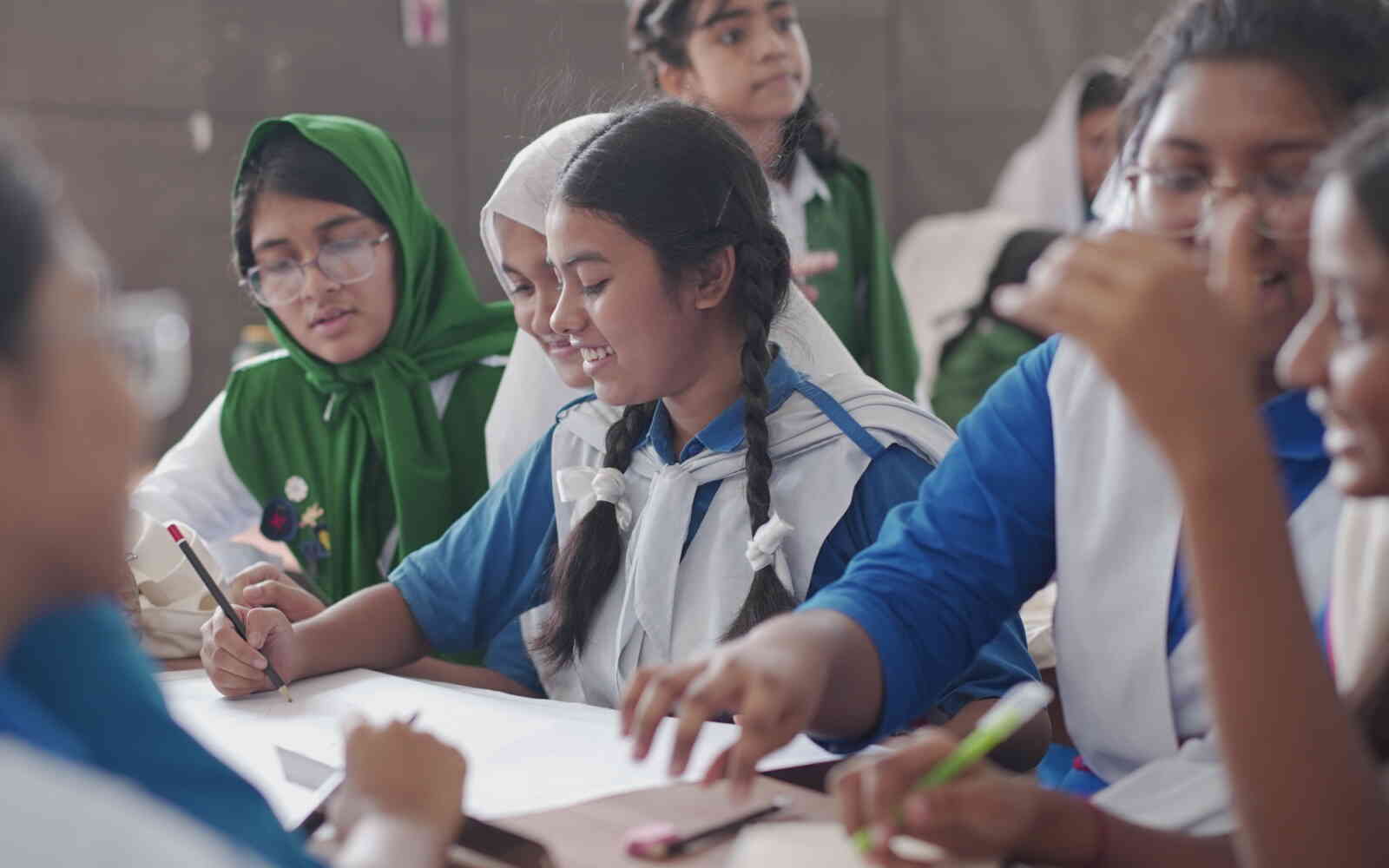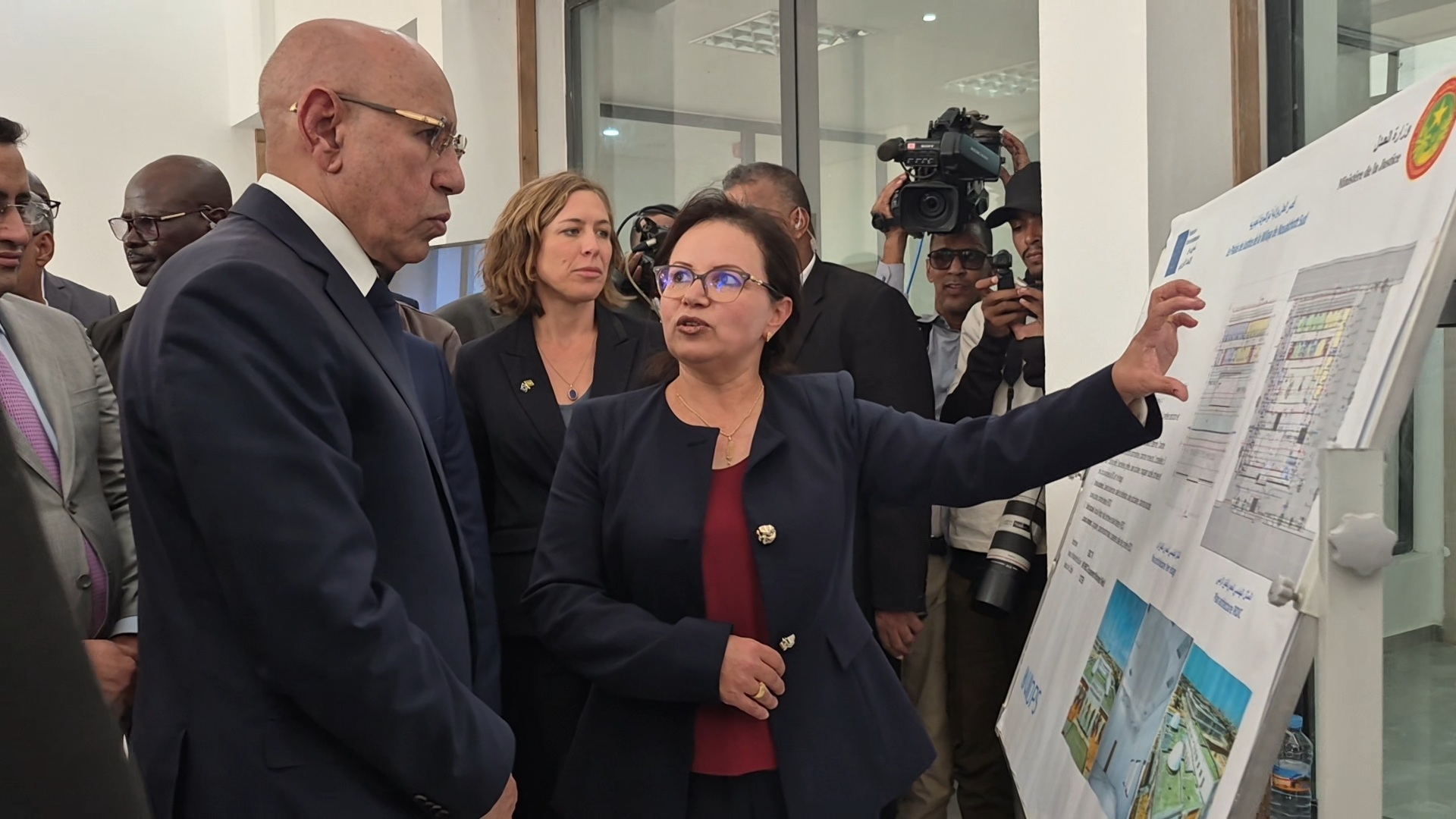The United Nations Office for Project Services (UNOPS)

Gender parity is necessary when working in challenging locations
Humanitarian aid and development projects often take place in difficult locations. The need for a diverse and gender-balanced workforce to implement these projects can’t be ignored – here’s why.
The people working in international development should be representative of the people whose needs are being served. In too many places, that’s not the case – especially when it comes to women.
UNOPS implements projects around the world – including in locations where our project teams have uneven gender representation. In conflict-affected countries, in particular, women are underrepresented.
We need the best and brightest workforce – of all genders – to carry out our work.
So how can we improve the gender balance of projects in locations that have historically had very few – if any – women working on the ground? By actively encouraging more qualified women to apply for positions in these locations in the first place.
Outreach activities can be a very effective way of connecting with more women interested in pursuing a career in the humanitarian and development sectors. Targeting different networking groups can help to increase the pool of applicants. In Nepal, for example, we have a women’s network that connects UNOPS recruiters with women working in the construction industry – especially important given our expertise in infrastructure implementation.
But for gender parity to become a reality in any organization, there must also be viable options to balance one’s professional and private life. Opportunities for true work-life balance must exist – for both women and men.
Accommodating the personal commitments personnel have outside of work is important. UNOPS in Afghanistan, for example, has a crèche for children, while our office in Kenya has a nursing room. And all UNOPS personnel, regardless of contract type, can request flexible working options.
If an organization can trust its personnel to manage millions of dollars, it should be able to trust them to manage their own working arrangements.
We’re also taking concrete actions to recruit more women into senior roles. If less than 20 per cent of the applicants for senior level posts are women, the hiring manager must outline the measures initially taken to reach out to and attract female applicants. Without a strong justification, the vacancy announcement must be extended or reopened.
To ensure that there aren’t any unconscious biases written into the vacancy announcement that are preventing qualified women from applying or making it through the selection process, the job requirements are also re-examined. In addition, women must make up at least 50 per cent of the shortlisted candidates for a senior level vacancy.
These efforts are beginning to bear fruit. Although we’re not there yet as an organization, we are making progress – the percentage of women at UNOPS has increased to 39 per cent. And by 2020, we aim to achieve full gender parity globally.
So why is this important? Because it’s actually vital to the long-term strength, sustainability and success of the organization, the projects we implement and, most importantly, the people we serve. It will also encourage a more gender-informed approach to project implementation – and ultimately lead to better solutions for our partners.
In my experience, women are often more likely to share their interests and lived experiences with other women. In the Middle East, for example, a UNOPS housing reconstruction project that targeted the most vulnerable groups, utilized gender-balanced teams to improve outreach to single-women headed households. If women aren’t adequately represented on our project teams, that hinders our ability to meet the needs of all of our beneficiaries.
The benefits of having gender-balanced project teams extends far beyond any one particular organization. It can help to provide long-term socio-economic opportunities for people, local communities and countries alike.
Seeing highly qualified women working across a range of jobs on UNOPS-implemented projects in their local communities can also inspire other women and girls to pursue careers in traditionally male-dominated fields.
Women bring their own unique perspectives to the table. Incorporating those perspectives helps ensure that the needs of everyone are taken into account – and best meet the needs of the people we serve.
Elyse Ruest-Archambault
Elyse Ruest-Archambault is a gender, inclusion and diversity specialist with more than 15 years of experience in development, peacekeeping, sport for development and capacity building. She has 10 years of experience working on gender mainstreaming, including with Action Contre la Faim in Bangladesh and the United Nations Peacekeeping Mission in Timor-Leste. She is currently a Diversity and Inclusion Specialist at UNOPS.











